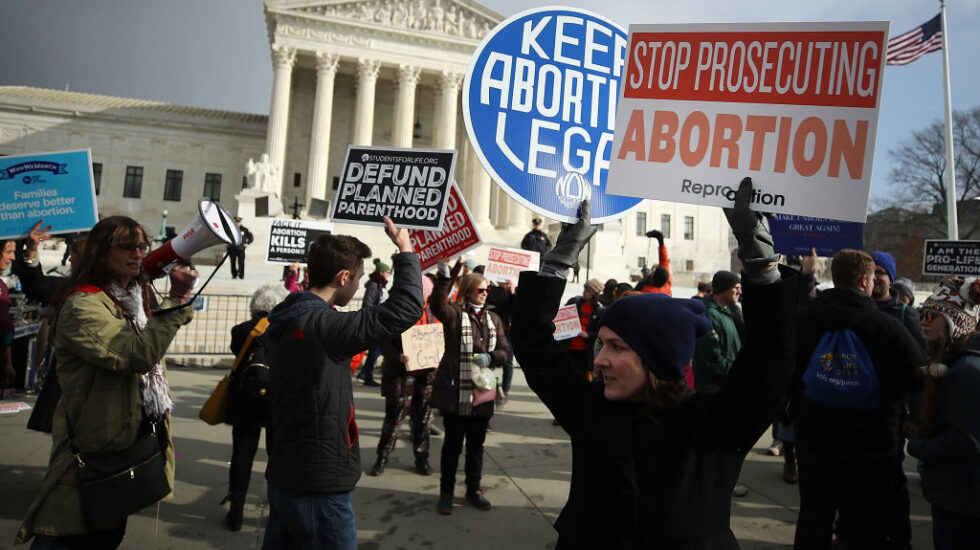The Trump-era confirmations of Justices Gorsuch, Kavanaugh, and Barrett delivered a powerful Supreme Court majority to conservatives. Now they hope to use the court’s rightward orientation to curb – or fully eliminate – abortion rights.
The Associated Press explains:
At an intense pace, lawmakers in Republican-governed states are considering an array of tough anti-abortion restrictions they hope might reach the Supreme Court and win approval from its conservative majority, overturning the 1973 Roe v. Wade decision that established a nationwide right to abortion.
Among the new legislation is a near-total ban on abortions signed by Arkansas’ Republican Governor Asa Hutchinson earlier this week . The bill – SB6 – is slated to go into effect this summer and makes no exceptions for instances of rape, incest or fetal anomalies. Experts say its legality is highly questionable – NPR reports that “similar attempts to restrict access to abortion services in Ohio, Georgia and Alabama in the past two years have failed after federal courts struck down local laws.”
In a statement, Gov. Hutchinson concedes SB6 “is in contradiction of binding precedents of the U.S. Supreme Court.” But he says creating sound law is not the point. His statement continues, “it is the intent of the legislation to set the stage for the Supreme Court overturning current case law.”
Slate summarizes the situation nicely, “The bill doubles as a brief to the justices—specifically, Amy Coney Barrett—urging them to overturn Roe immediately.”
A February 2021 USA Today article lays out the legislative landscape for the anti-abortion movement:
According to Kristin Ford, national communications director for NARAL Pro-Choice America, more than 60 bills have been introduced or passed in state legislatures so far this year to restrict abortion. Most are in conservative-leaning states like Montana, Kansas and Wyoming.
“These legislators are willing to do whatever it takes to advance their extreme agenda of gutting Roe v. Wade and pushing abortion care as far out of reach as possible,” Ford said. “With Roe in the crosshairs, the stakes for women, people who are pregnant and families are higher than ever.”
Last month, South Carolina lawmakers passed a bill that would ban abortions after a fetal heartbeat is detected, which can happen just six weeks into a pregnancy. That’s before some women even know they’re carrying.
The bill was quickly blocked by a court order. It’s sponsor hopes the country’s highest court will intervene, “This is a decision that the Supreme Court is going to need to make,” South Carolina State Rep. John McCravy, a Republican, said. “Certainly it’s encouraging to see the court changing and to see hope at the end of the tunnel.”
The renewed emphasis on restricting abortion rights is a legacy of the Trump administration that goes far beyond his Supreme Court picks. The AP explains that, “Trump made scores of appointments to federal district and appellate courts. That raises the possibility that previously rejected anti-abortion measures might now be upheld.”
Last year, a Gallup survey revealed that abortion remains one of America’s most evenly divided issues. Gallup found that 48% of Americans call themselves “pro-choice” while 46% say they are “pro-life.” Half of all Americans, according to Gallup, believe abortion should be legal under “certain circumstances.”
